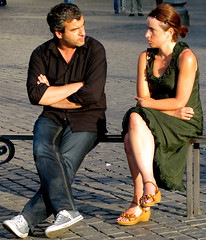Why You Should Become a Mentor

As a senior or experienced coach there are many things to do with your time outside of trying to fill a role as a mentor. You can go and watch any number of basketball games, spend time with your family or even pour more time into a business and work commitments you might have. These are the things that many coaches face on a day to day roster of pressing for their time and energy.
However being a mentor is a role which needs to promoted within many sports not just basketball. There is a great deal of difference between training and development. Into today’s sporting landscape there are many avenues for aspiring and junior coaches to gain knowledge and define understanding about the sports they love. But there are few chances to gain access to development opportunities and continue to grow their knowledge in the first instance and then have this challenged. This is the vital role of mentor coaches.
Mentor coaches help many coaches at a junior, senior or elite level to become better coaches by not challenging what something is, but why it is. It is this important difference why only a few coaching courses exist for elite coaches. In this realm it takes time for an opinion to be developed and a coach to them be asked to explain and defend this perspective in great detail. This is truly where the development of a coach’s philosophy begins instead of the mass produced copying of another more prominent or successful coach’s philosophy.
As a mentor you do not need to have all the answers. In fact it is quite the opposite as what is really needed is for you to be able to help your mentored coach/official discover their own answers and to truly find their own pathway through the countless options available to them currently in the sporting community. You need to be a sounding board for all manner of topics from some of the more obvious ones like a general coaching philosophy or and offensive/defensive philosophy and system to what best motivates and inspires the athletes you work with.
One of the greatest gifts as a mentor you can give to a person under your guidance is your time. For many recipients of an opportunity to be mentored this is the greatest gift of all. Having a chance to talk about basketball or different coaching challenges they currently face, defining the issue, considering all the options, weighing the possible outcomes and then reaching a decision on which way to go. These are great skills for life and not just sport. This helps sport build considerate coaching fraternity and can lead to greater changes then just one individual as they take this message, modify it and then plant these ideas within the athletes they coach.
One of the great joys of becoming a mentor is you have the ability to give your passion for your sport to someone else. In your mentored coach or official you can start a fire burning brightly for the sport you hold so dear and have been custodian of for so long. From this you build a legacy that can continue on long after you have given up standing on sidelines and spending long days in gyms.
The simple fact is we need more mentors and we need them today to help with our sports future into tomorrow and beyond.



